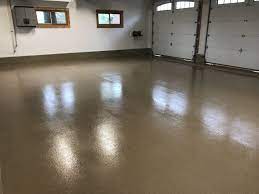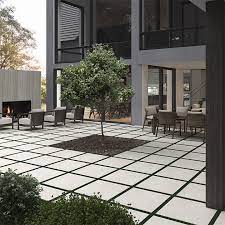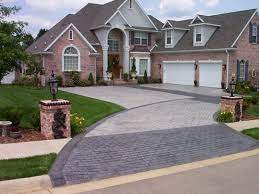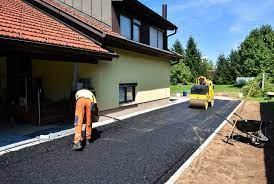Residential and Commercial Garage Floor Coatings: What’s the Difference?

Due to their many advantages, including improved durability, aesthetics, and resistance to wear and tear, garage floor coatings have grown in popularity for both residential and commercial spaces. Commercial and residential garage floor coatings are similar in some ways, but they differ greatly in terms of application, materials, and specifications. The differences between residential and commercial garage floor coatings, special considerations for each type, and how they can transform their respective spaces are all covered in this blog.
1. Function and Purpose
Residential and commercial garage floor coatings differ primarily in their purpose and function. Residential garages provide space for tools storage, vehicle parking, and hobby activities. Commercial garages, on the other hand, are frequently bigger and more heavily used; they frequently function as high-traffic areas, workspaces, or storage areas.
2. Use and Traffic
Compared to residential garages, commercial garages see much more foot and vehicle traffic. In order to withstand heavy loads and continuous use, commercial garage floor coatings Greenville must have increased durability and abrasion resistance.
3. Material Choice
The difference between residential and commercial garage floor coatings is largely dependent on the material selection. Epoxy, polyurea, or polyaspartic coatings are frequently used in residential coatings because they strike a balance between aesthetics and functionality. To handle the additional wear and impact in commercial garages, more robust options like epoxy with a high build or systems filled with quartz are frequently used.
4. Build and Thickness
Both the coating’s thickness and construction differ between applications in homes and businesses. To ensure superior durability and resistance to wear and tear, commercial garage floor coatings are typically thicker and may require multiple layers.
5. Resistance to Chemicals and Stains
Due to their use as workspaces or storage spaces, commercial garages may be exposed to a wider range of chemicals and substances. As a result, compared to residential coatings, commercial garage floor coatings frequently offer higher chemical and stain resistance.
6. Personalization and Beauty
Although there are many different colors and finishes available for both residential and commercial garage floor coatings, residential coatings might place a stronger emphasis on aesthetics to match the homeowner’s preferences and style. Commercial coatings may put functionality before aesthetics, despite still being available in a variety of colors.
7. Installation and Application
Applying and installing garage floor coatings differently for residential and commercial buildings is possible. To ensure the best adhesion and performance in high-traffic areas, commercial installations may need more thorough surface preparation, such as diamond grinding or shot blasting.
8. Time and Financial Factors
Commercial garage floor coating projects can have a larger scope and scale than residential ones. Commercial coatings may therefore require more preparation, application, and curing time and money.
9. Compliance with Regulations
Commercial garages might have to abide by particular rules, like hygienic and safety requirements. These requirements might need to guide the choice of floor coatings.
10. Upkeep and Durability
Commercial garage floor coatings must be maintained frequently to maintain their effectiveness because they are frequently subjected to more rigorous use. Residential coatings may require less frequent maintenance even though they still need to be properly maintained.
Conclusion
Due to their improved durability, beauty, and protection, garage floor coatings are great for both residential and commercial spaces. However, there are significant distinctions between residential and commercial garage floor coatings, reflecting the special functions, demands, and usage patterns of each.
Given that residential garages serve as multipurpose areas for vehicles, storage, and hobbies, the emphasis may be on striking a balance between aesthetics and functionality. On the other hand, commercial garages require heavy-duty coatings that can withstand more foot and vehicle traffic, making them appropriate for work spaces, storage areas, and high-traffic areas.
The decision regarding the garage floor coating ultimately comes down to the individual requirements, usage, and preferences of the homeowner or business owner. Property owners can turn their garages into useful, enduring, and aesthetically pleasing spaces that meet their specific needs by being informed about the distinctions between residential and commercial garage floor coatings, more info about IronDrive Garage Floors.






